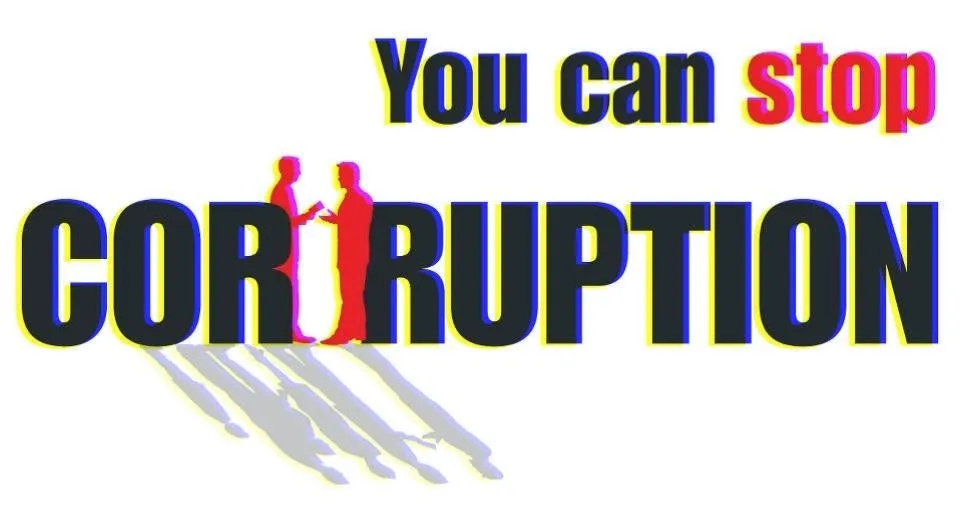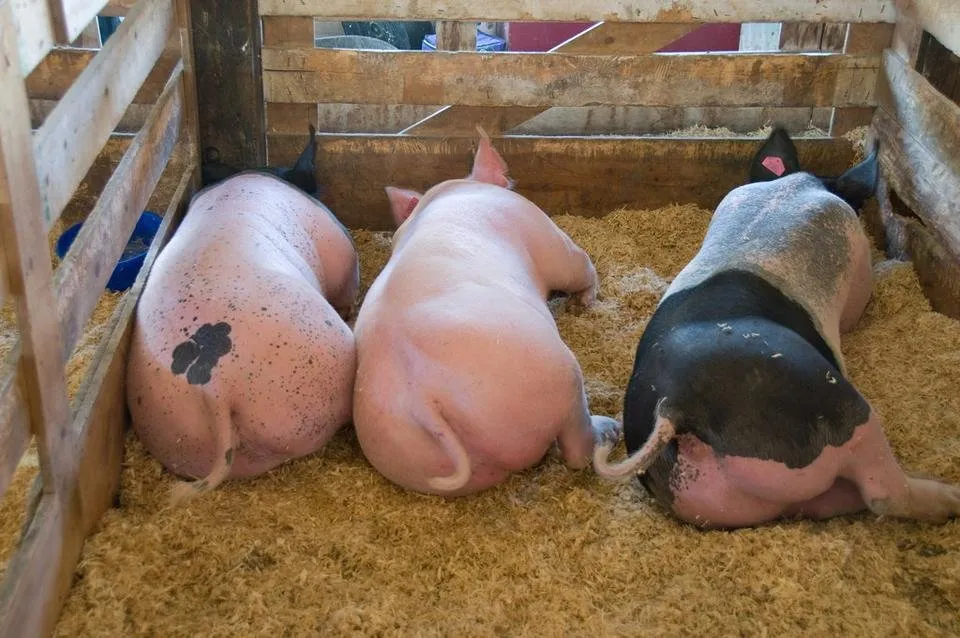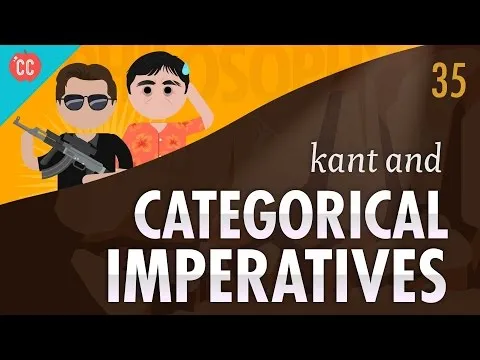
Moment of truth.
It’s an event that happens to us all the time. We learn. We change our minds. Read and write. That’s how the knowledge base in our brains get modified over time. Thing is, it's most likely that not all truths in our minds are true. There may be false truths as well.
So now, have you ever get so upset in a matter so much because you know you are very likely correct, but the knuckleheads in front of you just don’t want to learn the truth and act upon newfound knowledge? I'm sure many have gone through such an experience before.
I have in recent times. It's quite a rare event since I'm generally chilled to the max. Part of life I guess. It's funny because I've never even been to the local council here to lodge complaints before. But here I am, doing it on Steem. I guess that's because we have highly responsible witnesses working hard to improve Steem all the time and making sure things are still working.
The economy is not working out, guys.
You might have seen my ramblings about Steem's dysfunctional economic design recently here, here, and here.
And why am I feeling like I should push this through? I can already demonstrate the problem myself if I want to. Everybody also knows they can do it as well. It's only a matter of time before it becomes a full-swing phenomenon on Steem. Just sell 100% of our votes or use it only fully on ourselves. This is the property of linear economics and cheapified curation.
I'm beginning to think the huge monthly salary top witnesses are getting is working against the best interest of the platform. None of these guys are feeling the urgency to fix the damn pothole everybody has been complaining about. It's like consultancy. Propose half solutions and prolong the problem.

Image source
But I understand that some of us may all just be talking past each other most of the time. Not saying that I'm right, but I might be absolutely right lol. I'll attempt to elaborate as best I can. If we're in the same scope of discussion, then perhaps we can begin discussing this matter clearly. There's not much to discuss here though. Even my mum is saying "why so stupid"? Decide for yourself if it's agreeable.
Guiding principles in economic design.
- We can expect many different kinds of voters in a massive social network.
- The lowest common denominator activity is self-voting / vote-trading (no work).
- The second lowest common denominator activity is curation (smallest unit of work imaginable).
- (2) is easily 6-10x more profitable than (3). Zero work for most returns.
- Because (4), the problem should be fixed immediately. It's creating negative feedback loops in the system, much more than positive feedback loops. Balance it out.
Proposed changes.
(What we think is the cheapest move Steem can make to shift the economic equilibrium sufficiently enough to balance out the effects of voting)
- Capped modest superlinear (ie modest superlinear n~1.3 in lower-end, linear in higher-end)
- ~50% curation rewards.
- Slightly increased downvote incentives.
Expected benefits of proposed economic equilibrium.
- Less spam.
- Less pressure on scalability progress.
- Bigger curation economy.
- Decent content.
- Happier and better users.

(How about making corruption somewhat irrelevant on Steem with the right economic designs? Image source)
Bidbots and vote trading practices are cancerous under Steem's economy today.
I don't really have a problem with anyone exchanging votes, selling SP delegations, buying votes, or even operating bidbots. That's just the best move now, although it's at the expense of the network's long-term health. More and more users will start doing it as time goes on as behaviours converge into the expected economic equilibrium, which is rampant self-voting / vote trading. Really can't blame anyone at all. Anyone participating in these activities will more likely stop contributing to such corruption naturally when the right economic incentives are in place.
However, I have a problem if top witnesses defend the existence of vote trading markets and is not working to make such markets irrelevant. To be frank, I think it's intellectual dishonesty to continue doing so. They're not helping the platform at all. Vote trading is by definition blind and doesn't involve any work no matter how you reason it out. They're exactly the greedy and greasy middleman stuff that blockchains aspired to get rid of in design.
It's easy to know about this truth once you relate it with your observations and experience in the real world. Vote trading is ultimately a practice that corrupts organisations and is never a good idea to have it as the dominating force. Now I remember asking if vote trading is a corrupt practice last year, but I guess I was being too open-minded about it, reserving some healthy skepticism for my own convictions.
But in the end, 2 plus 2 is not equals 5. The mathematics and behavioural-economics of vote trading markets can never work out in favour of the greater good of any social platform. Or anywhere else really. Giving yourself free money is not work and such behaviour cannot be dominating the economy. Sure, the behaviour will always exist, even I do it myself sometimes. Who doesn't like easy money? But overall, we need to keep it in balance in-design. Currently, Steem's economy is highly imbalanced.
Bidbots will never go away. But they're cancerous under Steem's current economic reality, for reasons stated above. This is why we need to get curation behaviours rewarded at least on par with vote trading behaviours for the good of the platform.

(A witness spotted in the wild Tai Chi'ing away. Image source)
But, but, but.. we now have bidbots with whitelists and blacklists and rainbowlists and we just need to get more people self-voting and bidbotting on high quality contributions.
While I'd agree that bidbotting on great content / contributions is a lesser evil, it still doesn't escape the fact that vote trading is inherently blind and is an activity that doesn't involve any work.
Vote sellers get money for doing nothing, which is the same as self-voting. Vote buyers pay money to get votes for themselves. Vote brokers facilitate the transaction between buyers and sellers while taking an unnecessarily high middleman cut from Steem. None of the economic agents are doing any favour for Steem as a social content platform for doing the least work at most expense.
So if anyone's defending the vote trading market by saying there's work involved in updating whitelists, blacklists, or whateverlists, I'd say they're just babbling with no substance, especially when the premise remains the same: in linear economics, vote trading is basically self-voting, which is again, by definition content blind and involves zero work. I can't say this enough.
Also like any oracles, bidbot gatekeepers and operators are the writers of their own whateverlists. They can also just as likely produce their whateverlists for whatever else, like green-lighting their own friends, sock-puppets, mistresses, cats, dogs, and such while similarly able to strike off anyone else regardless whether or not they're productive agents on Steem.
"They will keep defending it as long as they are raking in the cash. The whole altruism pretense is silly."
by a very dedicated Steem witness and curator.
Yes, this also goes to bidbot operators that are also policing abuse, spam, and the likes. I know these things happen all the time, and are very important work. It's part of curation in some indirect way. But it remains that we're operating in an economy that's fuelled by the very activity that should've been avoided in the first place. It's almost the equivalent of the police department paying abusers to be abusers just so everyone gets to keep their fake jobs being busy and prosper. There may be good intentions, but the premise is entirely false under Steem's current economic reality.
Don't get me wrong, most vote traders may have Steem's best interest in mind, but if any witnesses are vote traders themselves, I'd most likely not going to treat them seriously unless they really recognise the problem but is doing it anyway just because it's the best move. Just please don't defend the practice simply because you're earning from it. It should have no place being the dominating practice in any networks, and it should be on top of witnesses' minds that economic reforms ought to take place because in my opinion, it's the most pressing problem on Steem now that doesn't require years of research and development to get anything done.
Honestly, it's getting harder for me to take most of the top witnesses seriously now if they can't see this problem in plain sight and acknowledge the truth. Who doesn't like easy money to keep their position? Everybody likes it and will likely defend their privilege in accessing easy money until the end of time.
Focus on designing the right economic incentives where we can only hope that the path of least of resistance everyone takes go to at least some small amount of work in order to fuel positive feedback loops. And that will be based on curation, not vote trading practices that create negative feedback loops.

(More witnesses spotted in the wild doing the Tai Chi. Image source)
But, but, but.. we can make it more efficient to swat out those who are abusing self-voting and bidbot votes.
Another brickwall of knuckleheadedness lol. I'd agree on a separate downvote pool and increased downvote incentives to keep behaviours in check. But as already reasoned out in previous posts and replies repeating the same thing over and over again by hundreds of different people, we are just fighting against an economy that incentivices counter-productive behaviours to a great degree, so that standalone solution itself is very likely insufficient.
One of the big reasons is that downvotes on spammy vote trading activities end up diverting the rewards pool back to other spammy vote trading activities elsewhere, anyway. What's ironic about this situation is that our massive flagging activites, along with accounts creatively distributing themselves to more sock puppets and more useless posts will add even more spam on the network.
Again, this all falls apart only because of the dysfunctional economic equilibrium we're in right now, which can very likely be fixed.
Downvotes should only be seen as a backup plan. The only truly effective way to solve the problems we have right now is to design an economy that will have a better chance of preventing the activities and behaviours that we'd (rather not) want to downvote.

(A witness doing the Tai Chi by the beach. Image source)
But, but, but.. new and low-powered users will feel left out if they can't effectively self-vote.
So sell them some votes? I don't know what to say about this. If only for the purpose of advertising, sure. But now it's not advertising. It's something like a money-printing machine. What we're proposing here will effectively shrink the profitability of vote buyers / sellers / intermediaries. If vote buyers are paying much more with a higher-risk of not profiting from the action, then it's more like advertising, which means persistent users of this nature are the users that we'd actually want more than the rest.
Again, self-voting and vote trading are ultimately the same activity that's content blind and involves no work at all, even if said new users are self-voting or bidbotting on objectively great content or contributions all the time.
If users have been consistently curating and contributing to the network, they will more likely get voted up when there are better curation economies going on in the network. To retain users (the kind we'd want anyway), they would need to feel that it's more or less working fairly. Let me explain what fair here means. It simply means that curation rewards are on par with vote trading rewards, if not better. If the economy's fair and has a decent amount of curation, then users will more likely stay whether or not they're actually getting curated.
We can only hope to implement a massive, but functional Steem economy when it can at least reward work as much as no-work. Yes, we're working with the absolute minimum requirement by equating a simple act of curation as a smallest unit of work on the platform. Today, Steem is rewarding no-work much more than work. So it's not Proof-of-Brain enough.
I'd entirely agree that squeezing out the floor sucks for the smaller players as they lose some of that gamification element to dust-vote themselves under the proposed changes. But that's only one small part of gamification. There are other kinds of gamification, like persisting and perhaps getting recognised later by the community for their great contributions? Ever played a difficult game and succeeding?
But of course, we wouldn't want to make life punishingly difficult for new users and low SP users alike as with the case of n2 rewards. And as explained, purely linear economics inherently works against the favour of the platform even though it'd attract plenty of players. This is why many of us have been suggesting somewhere in-between linear (n) and superlinear (n2), which we could term as capped modest superlinear, for example, n1.337, or even n1.618 which is based on the golden ratio - with the top-ends maintaining linearity.

(Big butts. Image source)
But, but, but.. the rich will only get richer.
One common reservation about the modest superlinear and ~50% curation rewards proposal is that it provides highly-staked accounts more influence, while also making the rich richer. I seriously have no idea why this is a problem. It's very likely the rich will get richer anyway, especially if they simply diversify their wealth. Great wealth and influence is not the problem. The problem is the alignment of economic incentives.
Plus, if the argument is the rich will only get richer.. what about Steem's current economy that is making the laziest workers richer than the hardworkers? Don't even need to any hard data and statistics for this. Just use the platform and look around yourself.
Soon 90% of stakeholders will be doing nothing but just sell their votes and self-vote to oblivion with spammy stuff. It will become highly unsustainable. 90% is actually not so far from our current situation now with an estimated 50-70% of total Steem Power being sold and self-voted. It will only get worse.
The point here, again, is to have economic incentives moving away from vote trading activities and into curation activities, so that even the biggest stakeholders on the network will effectively have more of their voting power going to curation activities (either by manual curating, auto-curating, and delegating SP to curation groups and such) compared to what we have today.
However, I understand that extreme wealth disparity could very well be somewhat destructive in any society, although I still think it's not the greatest problem, especially with the right economic incentives in place, one that distributes wealth all around.
In any case, capped superlinear is a good idea. Superlinear rewards in the lower-end, and linear reward in the higher-end. What we really want here is ~80% of the benefits in superlinear for ~20% of the cost, hence somewhere between n and n2 with a linear top-end. Best bang for the buck.

(Sleeping buttnaked. Image source)
But, but, but.. maybe we just need more layers of value-adding services other than vote-trading services.
Of course we can use more value-adding services like @dlive, @dtube, @utopian-io, @steemhunt, @steemmonsters and such. These services may pan out well. But my guess is that's only more likely under the right circumstances. It's just very likely not going to add much to Steem at the moment. The path of least work and most money is still in self-voting and vote trading, which again, creates negative feedback loops for Steem and generally making the UX terrible for users of the platform as well.
But, but, but.. non-linear is not business-friendly.
I personally think the defence that investors and businesses should participate heavily in self-voting and voting trading is, sorry to say, moronic. No good investments work that way. It's literally devaluing their stakes because it's feeding into a negative feedback loop. But I understand that it's the best move now.
However, if you just think one step ahead, solving Steem's economic problem as per our proposal will likely provide more sustainable returns and make the platform a better place for everyone, especially investors.
But, but, but.. we should lead by example then.
"As I've argued before, this is not a problem of individual misbehavior or bad culture or inability to discover good content or bad ui etc. We've just got a flawed economic system that provides the very action we don't want with the highest rewards."
by @trafalgar
But, but, but.. ok chill. Enough has been said about the subject.
Why are we talking past each other most of the time anyway?
I had a realisation yesterday. Discussions can only be effective when participants are able to scope out their thoughts and work in the same wavelength, so to speak. I feel like we are sometimes irrational in discussions because there are emotions involved in the mix. I suspect that it might have to do with our sense of ethics when we're discussing stuff: Kantianism vs utilitarinism / consequentialism.
Anyway, going through this process of complaining recently has also made me experienced firsthand discussions on blockchain protocol changes. Oh boy, such discussions can hardly scale beyond the size of a telephone booth, and achieving consensus in a decentralised network is really not easy at all. The struggle is real. It's a long and tedious process to even get anything moving forward, even agreeing on something as simple as 2 + 2 is not equals 5 (like Steem's economic problem, honestly).
Makes me wanna bang my head on the wall. Because we also get muddled in-between objective and subjective thinking all the time. It's almost like thinking either in System 1 or System 2, fluctuating between different topics while communicating, while more often than not, completely missing the point of the discussion in the end. Even then, our discussions usually get lost in the wind with no machines around trying to make sense of it all. Repeat over and over again. It's a huge time-sink. Will the real semantic web please stand up?
Thank Ohad that the technology might be arriving soon. I hope it works. It'll be a shame to stay frozen and paralysed on this simple matter though. But I digress.
Please take our proposal seriously.
I know it might not be fair for me to say this, but top witnesses literally only have one job other than maintaining witness nodes: Make Steem Better. But it seems like Steem has been in the ICU ward for a while now and nobody's attending the emergency.
Don't mind if I repeat here.
Guiding principles in economic design.
- We can expect many different kinds of voters in a massive social network.
- The lowest common denominator activity is self-voting / vote-trading (no work).
- The second lowest common denominator activity is curation (smallest unit of work imaginable).
- (2) is easily 6-10x more profitable than (3). Zero work for most returns.
- Because (4), the problem should be fixed immediately. It's creating negative feedback loops in the system, much more than positive feedback loops. Balance it out.
Proposed changes.
(What we think is the cheapest move Steem can make to shift the economic equilibrium sufficiently enough to balance out the effects of voting)
- Capped modest superlinear (ie modest superlinear n~1.3 in lower-end, linear in higher-end)
- ~50% curation rewards.
- Slightly increased downvote incentives.
Expected benefits of proposed economic equilibrium.
- Less spam.
- Less pressure on scalability progress.
- Bigger curation economy.
- Decent content.
- Happier and better users.

